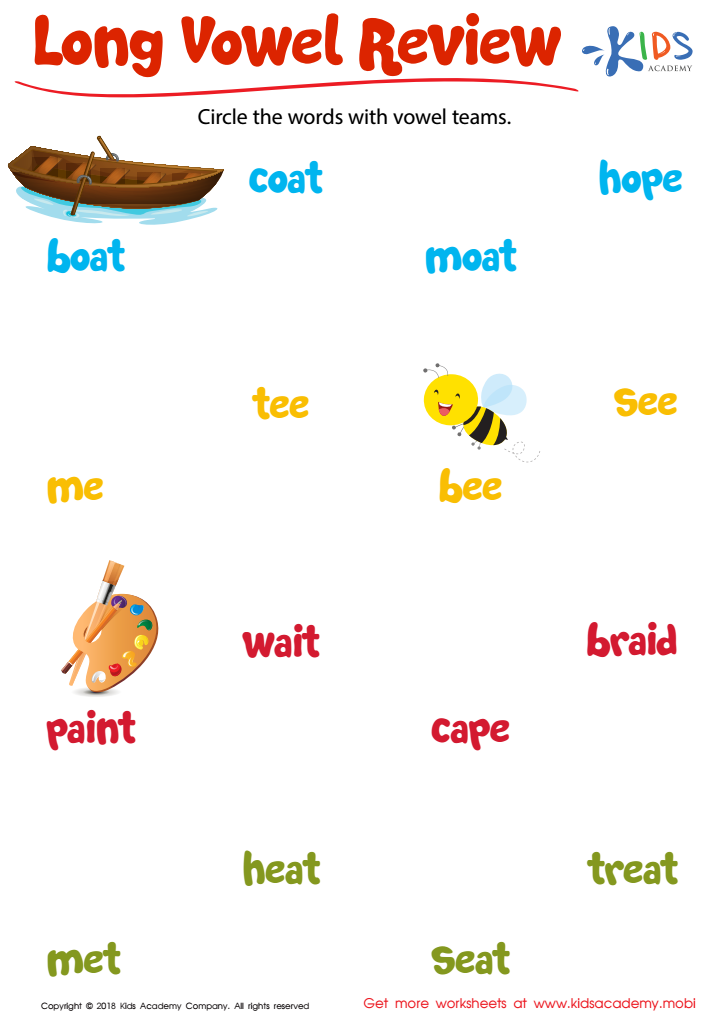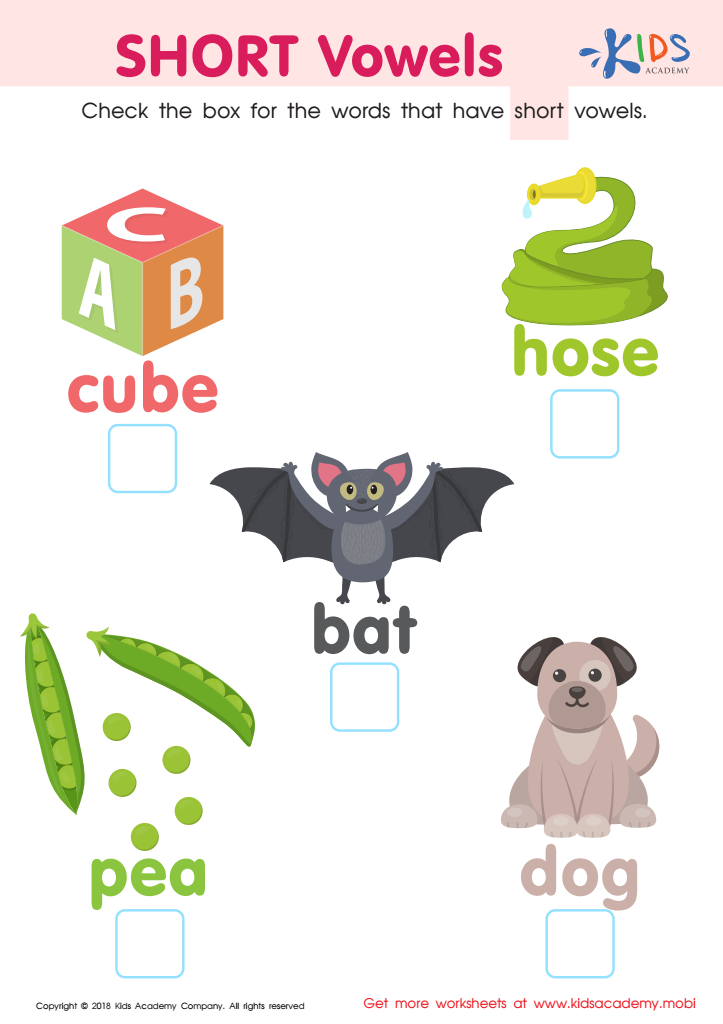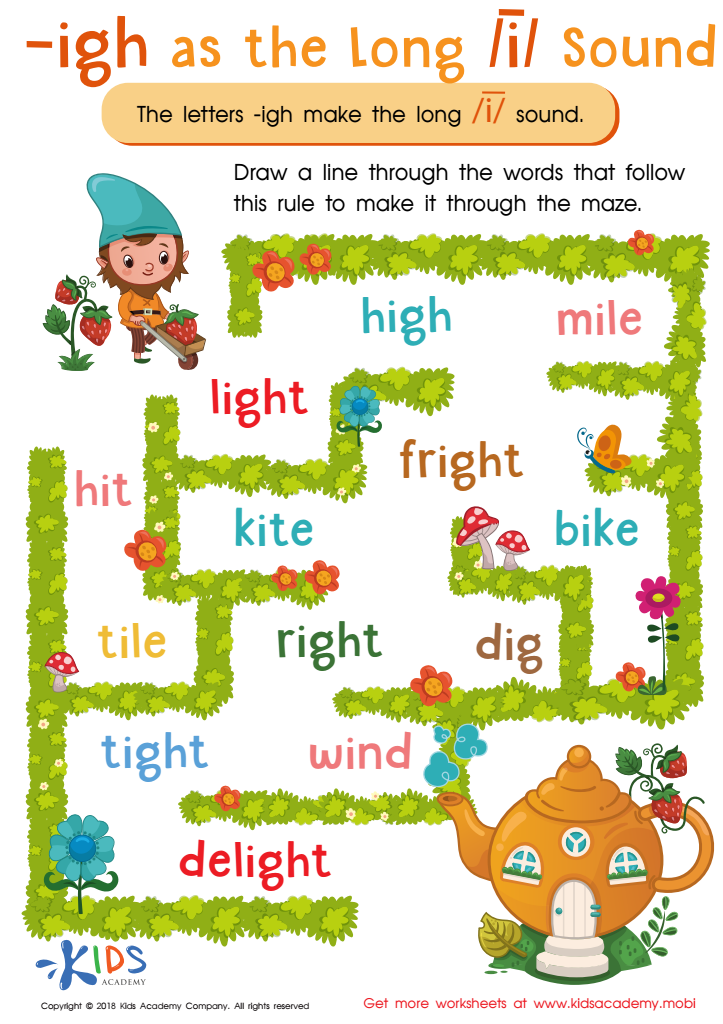Phonics practice Normal Vowels and Consonants Worksheets for Ages 3-8
4 filtered results
-
From - To
Explore our engaging phonics practice worksheets designed for children ages 3 to 8, focused on normal vowels and consonants! Our resources offer a fun way for young learners to strengthen their understanding of the alphabet while developing essential reading and writing skills. Each worksheet is crafted to enhance phonemic awareness through interactive activities that captivate young minds. Ideal for both classroom and home use, these printable resources support early literacy and phonics education, helping children recognize and manipulate letters effectively. Download now to empower your child’s learning journey with engaging worksheets that make mastering vowels and consonants both fun and effective!


Long Vowel Review Worksheet


short vowels Worksheet


Short Vowel Eggs Worksheet


Reading: IGH as Long I Worksheet
Phonics practice, particularly with normal vowels and consonants, plays a crucial role in the early literacy development of children aged 3-8. Understanding the sounds that letters represent is foundational for reading success. When parents and teachers emphasize phonics, they equip children with the tools to decode words, making reading a more accessible skill. This knowledge not only boosts a child's confidence but also enhances their ability to comprehend texts more effectively.
Engaging in phonics practice helps refine essential auditory processing skills. Children learn to recognize patterns in language, which aids in spelling and word recognition. Furthermore, this practice supports vocabulary development as children see how letters combine to create different sounds and meanings.
Moreover, early phonics exposure is linked to long-term academic success. Children who grasp these concepts are more likely to become fluent readers, fostering a love for reading and learning that lasts a lifetime. Importantly, routine phonics activities can be fun and interactive, promoting a positive learning environment. Involving parents in this process through games and reading activities can strengthen the home-school connection, enhancing the child’s overall literacy experience. Hence, prioritizing phonics practice is essential for foundational learning during these formative years.
 Assign to My Students
Assign to My Students








